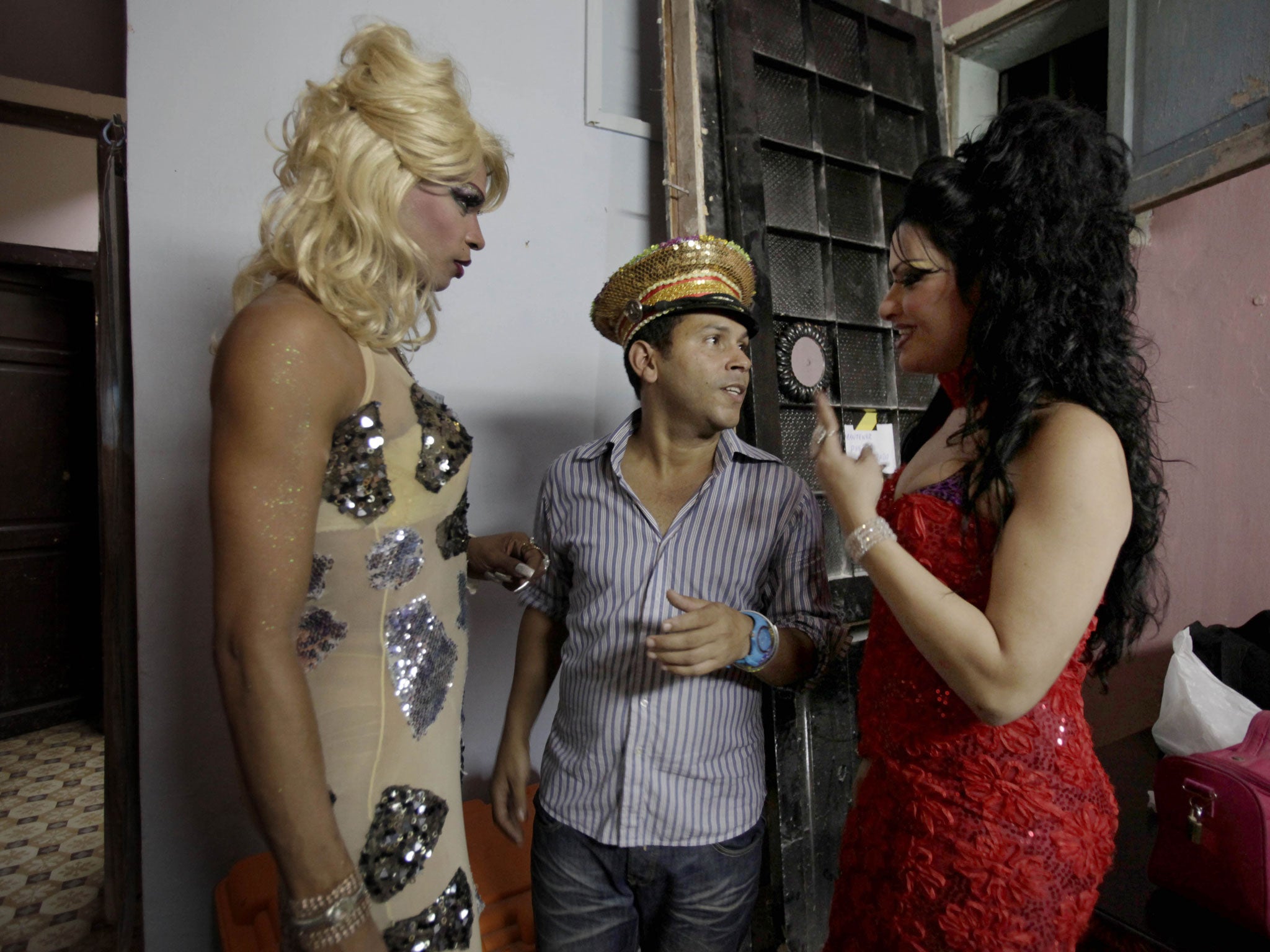Nightclubs and markets flourish as Cuba slowly embraces capitalism
The free market is still limited in Cuba, but already it is altering lives and reshaping attitudes

Your support helps us to tell the story
From reproductive rights to climate change to Big Tech, The Independent is on the ground when the story is developing. Whether it's investigating the financials of Elon Musk's pro-Trump PAC or producing our latest documentary, 'The A Word', which shines a light on the American women fighting for reproductive rights, we know how important it is to parse out the facts from the messaging.
At such a critical moment in US history, we need reporters on the ground. Your donation allows us to keep sending journalists to speak to both sides of the story.
The Independent is trusted by Americans across the entire political spectrum. And unlike many other quality news outlets, we choose not to lock Americans out of our reporting and analysis with paywalls. We believe quality journalism should be available to everyone, paid for by those who can afford it.
Your support makes all the difference.It might not yet be Wall Street or the Square Mile, but as more and more Cubans go into business for themselves under President Raul Castro’s economic reforms, the ethos of capitalism is increasingly seeping into the island’s daily life, often in stark conflict with fundamental tenets of the Cuban revolution.
These days it seems there’s a snack shop or pirate DVD stand on every other block in parts of Havana. Farmers line up before dawn at an open-air market to jockey for the best spot to sell their produce. After decades of being urged to report any black-market activity in their neighbourhoods, some Cubans now find themselves worrying that they’re falling behind.
The free market is still limited in Cuba, but already it is altering lives and reshaping attitudes. Some fear – and others hope – that values anathema to a half-century of communist rule are taking root more with each passing day: it is OK to make money, within limits; workers can reap the benefits of their own labour directly, instead of seeing it redistributed; individual enterprise is rewarded.
“There have been changes, and as the country grows there will be more,” said Luis Antonio Veliz, the owner of the Fashion Bar Habana nightclub. “It’s a very positive thing, but some Cubans are having difficulty understanding that now not everything depends on the state.”
While many new entrepreneurs have failed, undone by a lack of supplies, a limited customer base and scarce resources, many of those who have succeeded have entered a glamorous world that disappeared after Fidel Castro’s arrival in Havana put an end to the freewheeling 1950s.
It is on display at Fashion Bar Habana, where Mr Veliz has done well enough that he recently was able to relocate his business to the colonial quarter that draws well-heeled tourists. But with success, came sacrifice. Mr Veliz realised he had to be on-call 24 hours a day to solve problems – an unthinkable notion when he was a state-employed restaurant worker.
“When you work for yourself, you have to look out for your own interests,” Mr Veliz said. “I have become harder, tougher, more confident.”
The law of the marketplace visibly dominates places such as Egido Street, which teems with horn-blowing cars and independent pedicab drivers calling out to potential fares.
Dozens of entrepreneurs have moved in to take advantage of the crowds around a farmer’s market. They include 13 flower shops and at least seven snack bars that all offer the same ham and cheese sandwiches.
Yeska Estiu, a 44-year-old florist, recalled the dilemma she faced when stores ran out of the green spray paint they use to spruce up their arrangements. She hit on switching to white paint – giving her bouquets a snowy touch that was a big hit with clients.
Within a few days, the others had copied the technique. “Here, sales are based on quality, on innovation,” said Ms Estiu, who also tries to stand out from her neighbours by swathing her bouquets in brightly coloured paper and ribbons brought from overseas by her husband.
The new business ethos comes with risks, some Cubans say. Gilberto Valladares, better known as “Papito”, worries that competition and self-interest will eat away at revolutionary values such as solidarity, unity and nationalist pride. Mr Valladares is the founder of the private hair studio Artecorte, which resembles an opulent European salon with its mosaic floors and intricate plaster moulding.
He is on a mission to convince fellow entrepreneurs that they have a moral duty to give back to the community. In recent years he has used his salon to bankroll a neighbourhood revival project, opening up an adjacent barbers’ school, repainting walls and installing plants and street lights. “I want people to understand that not only should there be economic benefit, but they can contribute to the social benefit,” said Mr Valladares.
Back at Egido Street, Manuela Pena, 73, complained that prices were soaring. After hearing decades of Marxist preaching that all Cubans should share the same fate, she is falling behind. “The country is going from bad to worse,” she said.
AP
Join our commenting forum
Join thought-provoking conversations, follow other Independent readers and see their replies
Comments